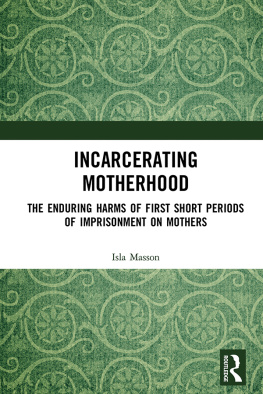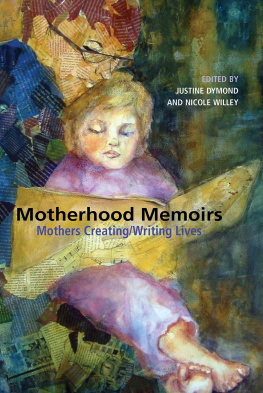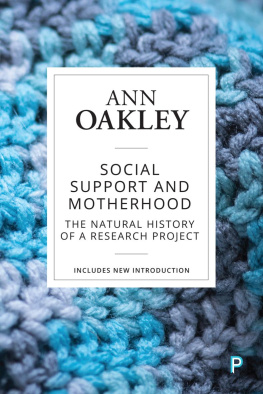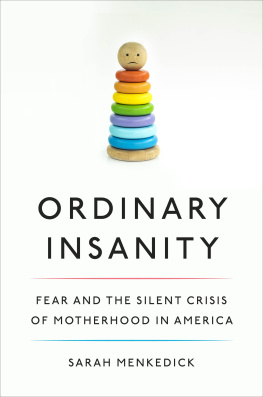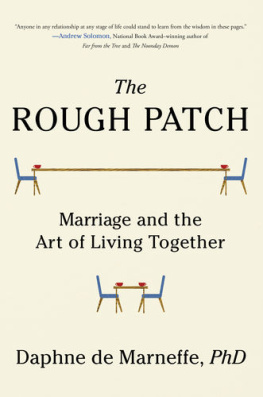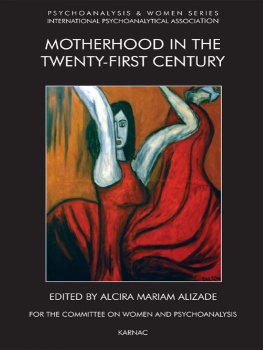MOTHERHOOD, ABSENCE AND TRANSITION
For my children, Zo and Tom, and to welcome Ruaidhr b. 2009
Motherhood, Absence and Transition
When Adult Children Leave Home
TRISH GREEN
University of Sheffield, UK
First published 2010 by Ashgate Publishing
Published 2016 by Routledge
2 Park Square, Milton Park, Abingdon, Oxon OX14 4RN
711 Third Avenue, New York, NY 10017, USA
Routledge is an imprint of the Taylor & Francis Group, an informa business
Copyright 2010 Trish Green
All rights reserved. No part of this book may be reprinted or reproduced or utilised in any form or by any electronic, mechanical, or other means, now known or hereafter invented, including photocopying and recording, or in any information storage or retrieval system, without permission in writing from the publishers.
Trish Green has asserted her right under the Copyright, Designs and Patents Act, 1988, to be identified as the author of this work.
Notice:
Product or corporate names may be trademarks or registered trademarks, and are used only for identification and explanation without intent to infringe.
British Library Cataloguing in Publication Data
Green, Trish.
Motherhood, absence and transition: when adult children leave home.
1. Parent and adult child. 2. Mother and child. 3. Separation (Psychology)
I. Title
306.8743-dc22
Library of Congress Cataloging-in-Publication Data
Green, Trish.
Motherhood, absence and transition: when adult children leave home / by Trish Green.
p. cm.
Includes bibliographical references and index.
ISBN 978-0-7546-7733-8 (hbk) -- ISBN 978-0-7546-9451-9 (ebook)
1. Motherhood--Psychological aspects. 2. Empty nesters--Psychology. 3. Parent and adult child. 4. Separation (Psychology) 5. Mother and child. I. Title.
HQ759.G756 2009
306.87430844--dc22
2009047203
ISBN 9780754677338 (hbk)
ISBN 9781315596112 (ebk)
Contents
Acknowledgements
Book completion is not a one-woman achievement and I owe a number of debts of gratitude to a great many people for their help and support. I am of course indebted to the women who participated in my research and thank them for sharing their stories of motherhood with me. I owe enormous thanks to Gabriele Griffin for her inspiring advice, support, guidance and encouragement and for her warmth and generosity during some of the tough times I encountered along the way. My friends Jane, Karin, Maria and Pam sustained me throughout my endeavours with their humour and generosity and with a grace that kept me going throughout; thank you all. More recently friends and colleagues at the University of Sheffield have encouraged and supported me in my writing and research, and I want to give special thanks to Jenny Hockey and Andy Clayden. Finally and most importantly, I want to thank my children Zo and Tom, who were the inspiration for the work and maintained an unerring faith in me that I would succeed. Without them and their love, care and support, this book would not have been possible.
Introduction: Motherhood, Absence and Transition
This book is about womens perceptions and experiences of their adult children leaving home. It explores how the absence of the child in the mothers everyday life impacts on her sense of identity as a mother, and investigates her negotiation of the transition in her life course that is precipitated by that absence. It offers a chronological structure to findings from a three-year study of how women sustain relationships with their adult children over time and offers a critical lens to existing formulations of motherhood. In so doing, it yields elements of a new model for motherhood that reaches beyond current representations that foreground the presence rather than the absence of children.
Three decades ago Ann Oakley (1979: 24) commented that mothers lives are incurably affected by their motherhood; in one way or another the child will be a theme for ever, yet to date there remains very little acknowledgement of what mothering means to women once their children achieve the sociocultural status of adult and leave home. In consequence, and although there is no shortage of work that considers womens transition to motherhood, and mothering experiences during the early years of childrens lives, some of which is woven throughout this volume as well, our knowledge regarding the later phase of a mothers life course is extremely limited.
Whilst wanting to contribute to the subj ect of mothering over time and in relation to womens experiences of their childrens emerging adulthood and subsequent home-leaving, my initial desire to explore this issue was aroused by my own daughter leaving home for university in 2001, and was further reinforced by my sons leaving for the same reason in 2004. Their absence from the home provoked feelings that indicated I was unprepared for the meaning of their leaving in my own life.I began to question why no one had told me earlier about this phase of motherhood, which led me to further ask, if no one had told me, what about other mothers? As Shulamit Reinharz (1992: 235) states: some feminist researchers [] start with their experience, are troubled by it, and then collect other data to compare with their experience and this is indeed what happened to me. There is then much personal investment in the following brief reflection of my story to date and in this volume overall. Lyn Jamieson (1998: 10) comments however that when story tellers seek an audience beyond a personal circle, they invariably have an interest in telling a particular version of events and I shall of course of necessity be selective. I return to this issue when I introduce the women who participated in my research and whose stories unfold in the chapters that follow.
A Personal Story
I qualified as a nursery nurse in the early 1970s and worked briefly in my northern UK hometown before leaving home to work in South Wales. I married in 1977 and returned to my hometown where my husband pursued a university degree. In 1982, my daughter Zo was born, followed by the birth of Tom in 1984. We later lived in London and then Derbyshire, where we bought our first house. It was there, in 1987, that my husband and I separated. Although a financial struggle I found mothering alone an emotionally rewarding and enjoyable experience and reflect on this aspect of my life as extremely fulfilling. I believe the strength of the relationship the three of us have in the present-day lies in the fact that I brought my children up by myself and that the mutual love and respect we have for each other grew from the close-knit family the three of us became.
In 1989 I fell back on my nursery nurse training and worked full-time in the day nursery of the local university. The contradiction of my life as a mother at this time will never escape me; I was paid to care for the children of others but had I been given the choice, I would have stayed at home to care for my own. However, the lack of welfare support for lone mothers during the 1980s and 1990s (which continues into the present day) meant very little financial support would have been forthcoming. My reason for working during my childrens early years is therefore underscored by a commitment to providing us with a home of our own and an attempt to ensure our financial security. I continued working in the nursery for ten years.


